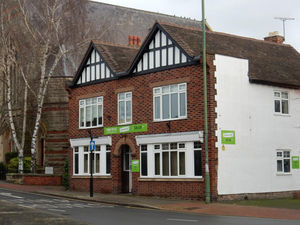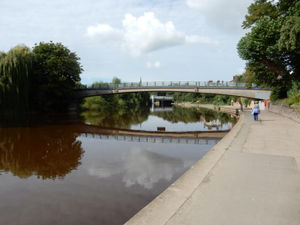Phil Gillam: A journey freed from the prisons of past and future
Me? Well, frankly, I think a trip to Carding Mill Valley is an adventure.
But clearly there are people out there who like to stretch far beyond Shropshire’s boundaries and truly challenge themselves in every sense.
One such individual is Shrewsbury writer and spiritual explorer John Clark, a journalist for 41 years before retiring in 2003, now a teacher of the Alexander Technique for self-development and stress-relief, and of yoga; and John is also a beekeeper.
When John decided to walk the Camino de Santiago, a network of pilgrims’ ways in northern Spain, he had no idea why he felt so compelled to do so.
On his trek of more than 800 kilometres, he experienced much laughter and tears, a minor miraculous cure, raised money for a charity and lost a full stone in weight.
But more importantly he experienced a sort of homecoming which finally ended a restlessness he had known for most of his adult life.
Oh, by the way, if any of this has a ring of familiarity to it, it might be because you’ve recently been watching the BBC2 series, Pilgrimage: The Road to Santiago, in which a bunch of celebs (including entertainer Debbie McGee, actor Neil Morrissey and comedian Ed Byrne) tackled this legendary route.
John Clarke, meanwhile, has just published his book about his adventure - The Road Home (available from Pengwern Books in Fish Street, Shrewsbury, and on eBay).
John says: “At times funny and at others full of pathos, The Road Home tells of my journey. It also examines the question of reincarnation, which has troubled the Church for 1,500 years, the re-invention of Jesus as a married man who might not have died on the cross and reveals a clue to the whereabouts of Jesus during some of the ‘lost years’ between his childhood and the start of his ministry.”
Even at the very outset of this adventure there are minor dramas with which to contend.
“Saturday, 13th April: Grabbed my rucksack and took the Underground to St Pancras, where I met Roberto (my good friend and travelling companion). My wife Michele accompanied me and we said our farewells. She has actually encouraged me to go on this adventure, which I think is most selfless of her.
“Just before boarding the Eurostar to travel to Paris, a member of the security staff decides she wants to see inside Roberto’s rucksack. Not a very auspicious start as Roberto poured out all the contents in no particular order.
“I should have realised then that it was some kind of omen, for I was to see the contents of Roberto’s rucksack a number of times over the coming days.”
At the Gare du Nord in Paris, a woman indicates she wants John to sign a petition of some kind.
“Anything to oblige, I think, and am just about to sign when a portly member of the station staff accosts her and orders her to leave in a very loud voice.
“Outside the station the same woman approaches us again. I sign her petition and then she indicates she wants money and I realise it’s a method of begging. Before I can do anything the staff member storms up again and grabs the papers from her and tears them up.”
One month on, after so many ups and downs, so many thought-provoking incidents, John, now in Santiago, is in philosophical mood.
“Although I have spent many hours sorting out things from my past, there have been vast expanses of the day just being in the present moment, which all of the great masters teach. What a great relief this is, freed from the prisons of past and future, which are merely conceptions of the mind created for convenience.
“Much of our guilt, anger, frustration and grief arises from the past. Much of our fear arises from thoughts of the future …
“When we come into the present our bodies release the tensions created by our past actions, and our mind releases fears of the future."





